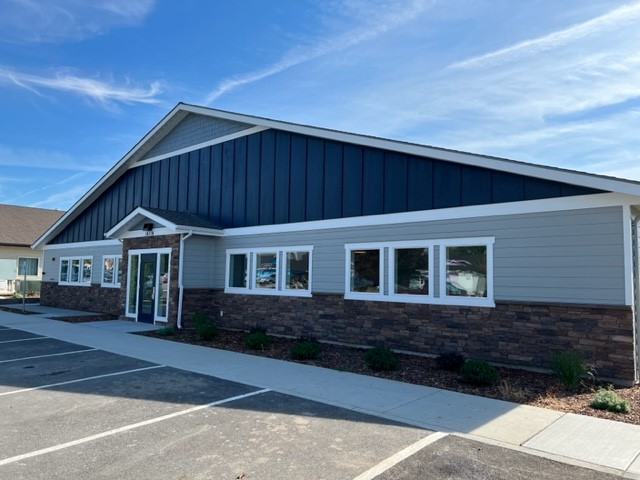
Living with someone with mental illness can feel overwhelming, confusing, and emotionally draining at times. Many families try to offer comfort while also keeping up with work, bills, chores, and their own well-being. When symptoms shift or communication becomes tense, you may feel uncertain about what to say or how to help. These reactions are normal, and many people share similar personal experiences when supporting a loved one.
This guide offers clear, compassionate information to help you understand what your family member may be going through. You’ll learn how mental illness affects daily routines, what signs to watch for, and how to create a supportive home without losing yourself in the process. Whether you’re living with someone who has mental illness — like a sibling who is struggling or a partner who feels overwhelmed — you deserve clarity and support.
Skip To
Table of Contents
How Mental Illness Can Influence Daily Life at Home
Mental illness affects people in different ways. Some experience symptoms that come and go, while others face challenges daily. You may see changes in sleep, motivation, concentration, mood, or energy. Your loved one might withdraw during difficult moments, act irritable, or struggle to express what they feel.
These shifts are not signs of laziness or lack of love. They often happen because the brain is overwhelmed or trying to cope with internal distress. Understanding this can help reduce frustration and open space for more compassionate conversations.
Living with someone who has a mental illness can also change how the household functions. Roles may shift, plans may need flexibility, and communication can feel draining. It’s common to feel unsure about how much support to give or when to encourage more independence. You may also notice your own emotions fluctuate—worry, guilt, exhaustion, and hope can exist together.
A licensed clinician can help determine what level of care makes sense. If you’re unsure where to begin, a mental health evaluation can offer clarity, reassurance, and direction.
End the Emotional Pain. Get Your Life Back.
Feeling Depressed, Anxious or Struggling with Mental Health Illness? Get Safe Comfortable Mental Health Dual Diagnosis High-Quality Therapy From Counselors That Care. Begin Your Recovery Now.
Hotline: (509) 348-4077

What Contributes to the Challenges You Notice
Biological and Medical Factors
When living with someone mentally ill, it helps to recognize these moments early so you can respond with calm routines, clear expectations, and emotional support. Conditions such as depression, anxiety, trauma-related disorders, bipolar disorder, and other mental health concerns often involve changes in brain functioning. These shifts can influence thinking patterns, emotional responses, and daily behavior. When symptoms of their mental health condition flare, your loved one may need more time, structure, or reassurance.
Stress and Daily Pressure
Financial strain, discrimination, workplace stress, or conflict at home may intensify symptoms. Many people notice mood swings or emotional sensitivity during life changes or periods of high pressure.
Trauma History
Trauma can affect trust, communication, and emotional regulation. Symptoms may show up as withdrawal, hypervigilance, or fear of conflict, especially in close relationships.
Limited Access to Support
Some individuals feel unsure about seeking help or have had negative experiences with treatment. Without guidance from a mental health professional, symptoms can become harder to manage over time.

Common Signs and Symptoms You Might See
Each person experiences mental illness differently, but you may notice:
- Sudden changes in sleep or appetite
- Trouble focusing, organizing tasks, or completing routines
- Irritability, emotional overwhelm, or low frustration tolerance
- Withdrawal from social interactions
- Persistent sadness, worry, or hopelessness
- Noticeable changes in energy or motivation
- Difficulty coping with everyday stress
Recognizing these signs early can help you set healthier boundaries and encourage supportive conversations.
Emotional and Practical Impacts on Families
Living with someone who has a mental illness can take a toll on your emotional and physical health. You may feel responsible for keeping the home balanced or monitoring your loved one’s safety. Over time, this can lead to burnout, resentment, or fatigue.
You might experience:
- Fear of “saying the wrong thing”
- Uncertainty about future stability
- Guilt for needing space or breaks
- Pressure to handle more responsibilities
- Confusion about mood changes
These experiences do not mean you are failing. They show how deeply you care. Many support group programs for friends and family highlight how common these feelings are.

Healthy Ways to Support Your Loved One
Supporting or living with someone with mental illness does not mean carrying everything on your own. These strategies can help create structure and emotional safety at home.
Communicate with Calm, Direct Language
Clear statements reduce misunderstandings. You can ask how they feel, offer reassurance, or reflect what you hear. This approach helps them feel valued without added pressure.
Learn About Their Condition
Understanding symptoms of mental illness helps you respond with empathy. Whether they experience anxiety, depression, bipolar disorder, or trauma-related symptoms, learning about their condition brings clarity to challenging moments.
Create Healthy Boundaries
Boundaries help everyone stay grounded. You might say:
- “I can listen, but I also need time to rest afterward.”
- “I support you, and I also need to feel safe in our home.”
Healthy boundaries are important when living with someone mentally ill, especially if symptoms affect communication or daily responsibilities.
Encourage Professional Support
If symptoms worsen or become overwhelming, structured treatment may help. Programs such as inpatient mental health treatment provide 24/7 support, stabilization, and therapeutic care for people who need more intensive help.
Build Predictable Routines
Routines reduce anxiety and help your loved one feel more grounded. Shared mealtimes, daily check-ins, or gentle reminders can make daily life feel steadier.
Seek Support for Yourself
Friends and family members deserve care, too. Joining a support group, connecting with others who have similar experiences, or talking with a therapist can help you manage stress and stay emotionally present. Support groups provide guidance for people living with someone mentally ill, helping them learn healthier ways to cope and connect.
Get Help. Get Better. Get Your Life Back.
Searching for Accredited Dual Diagnosis Mental Health Centers Near You?
Even if therapy failed previously, or are in the middle of a difficult crisis, we stand ready to support you. Our trusted behavioral health specialists will not give up on you. When you feel ready or just want someone to speak to about counseling alternatives to change your life call us. Even if we cannot assist you, we will lead you to wherever you can get support. There is no obligation. Call our hotline today.
FREE 24/7 Dual Diagnosis Mental Health Services HotlineWhen to Consider Professional Help
Some behaviors signal a need for assessment or treatment, including:
- Sudden or severe mood swings
- Increasing isolation or fearfulness
- Disorganized thoughts or difficulty communicating
- Talk of self-harm or harm to others
- Difficulty completing basic tasks
- Escalating conflict that feels unsafe
Evidence-based therapies may also help your loved one understand their symptoms more clearly. Many families find value in CBT therapy for mental health because it teaches practical skills for emotional regulation and thought patterns. If trauma contributes to their symptoms, trauma therapy may support deeper healing.
If any immediate safety concerns arise, contact local crisis services or emergency responders.

How We Level Up Washington Supports Families
We Level Up Washington provides residential mental health care in Spokane Valley for adults who need structured, therapeutic support. Many clients come to us during periods when symptoms become difficult to manage at home. Our team offers a comprehensive approach that includes 24/7 nursing, evidence-based therapy, and trauma-informed care.
Families often feel relieved knowing their loved one is in a safe, stable environment where professionals guide their recovery. We also help clients rebuild coping skills, strengthen communication, and prepare for long-term stability after leaving treatment.
If someone in your household struggles with persistent symptoms, our residential mental health treatment program may be a meaningful next step.
Accessing Support in Spokane Valley
Spokane Valley has a wide range of resources for individuals and families affected by mental illness. Community programs, therapy providers, and peer support groups offer emotional guidance and practical tools. If your loved one needs higher-level care, We Level Up Washington provides residential treatment designed for people with complex or persistent symptoms.
Local crisis lines, walk-in centers, and emergency services are available if immediate help is needed.
Actionable Tips You Can Use Today
- Pick calm moments to discuss concerns or patterns you’ve noticed.
- Validate feelings rather than trying to fix everything at once.
- Break overwhelming tasks into smaller, manageable steps.
- Create a shared plan for difficult days, including coping tools and grounding techniques.
- Make space for your own self-care through rest, movement, hobbies, or time with supportive people.
Comfortable Facilities & Amenities
High-Quality Mental Health Services & Behaviroal Health Substance Abuse Treatment
Rehab Centers TourRenowned Mental Health Centers. Serene Private Facilities. Inpatient Rehab Programs Vary.
Mental Health Helpline: (509) 348-4077Proven recovery success experience, backed by a Team w/ History of:
15+
Years of Unified Experience
100s
5-Star Reviews Across Our Centers
10K
Recovery Success Stories Across Our Network
- Low Patient to Therapist Ratio
- Comprehensive Dual-Diagnosis Treatment
- Complimentary Family & Alumni Programs
- Coaching, Recovery & Development Events
- Comfortable Onsite Medical Detox Center
Frequently Asked Questions (FAQs)
-
What should I do if my partner refuses help for their mental health symptoms?
Start by sharing your concerns calmly and compassionately. Focus on what you observe and how it affects both of you at home. Avoid pressure or ultimatums. Offering choices, not demands, helps keep communication open. You can also talk to a therapist yourself to learn supportive ways to approach the situation.
-
How can I tell when symptoms of a mental illness are getting worse?
Pay attention to changes in sleep, motivation, appetite, energy, or behavior. Withdrawal, hopelessness, and unusual thinking patterns can indicate worsening symptoms. If routines become harder for them to manage or if safety concerns arise, seeking professional guidance may help.
-
How do I take care of myself while supporting a family member with mental illness?
Give yourself permission to rest, set boundaries, and seek help when you need it. Friends, support groups, and therapy can help you cope with emotional stress. Making time for healthy routines reduces burnout and strengthens your ability to stay supportive.
-
Are there local options in Spokane Valley for people living with someone mentally ill?
Spokane Valley offers counseling centers, crisis services, and outpatient resources. Many families benefit from local therapy programs and peer support groups. Residential care is also available if symptoms become too overwhelming for home life.
-
How do I stay supportive without enabling unhealthy behaviors?
You can show empathy while maintaining clear, healthy boundaries. Encourage positive habits, treatment, and self-awareness. Avoid taking over responsibilities they can manage. Balance compassion with accountability so both of you feel safe and respected.
Get Support Today
If you’re living with someone who has a mental illness, you do not need to carry everything alone. Supportive, structured care can help your loved one stabilize and help you feel less overwhelmed. When you’re ready, We Level Up Washington is here to support both of you on the path toward healing and safety. Call us today at (509) 348-2399 for mental health evaluation.
Trusted External Sources:
https://www.nimh.nih.gov/health/topics/caring-for-your-mental-health
https://www.nami.org/advocate/self-help-techniques-for-coping-with-mental-illness/
https://www.nami.org/about-mental-illness/mental-health-conditions/
https://www.psychiatry.org/patients-families/what-is-mental-illness




